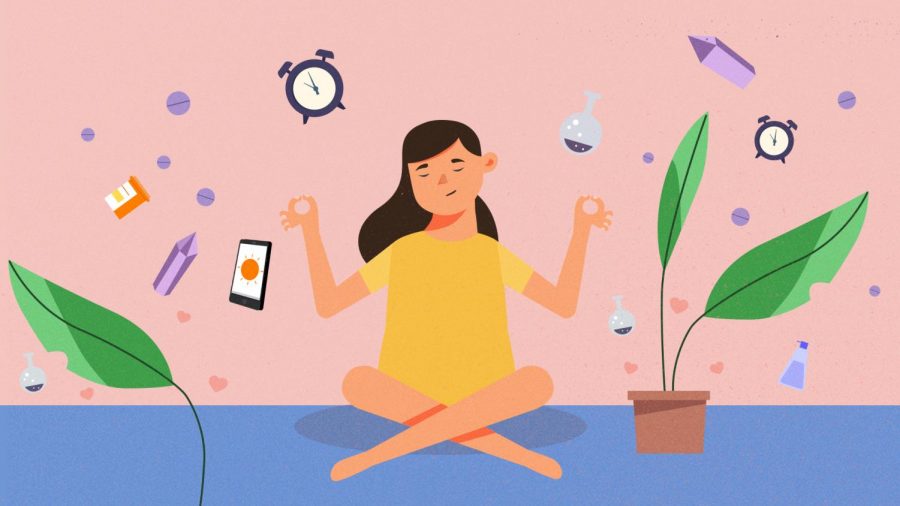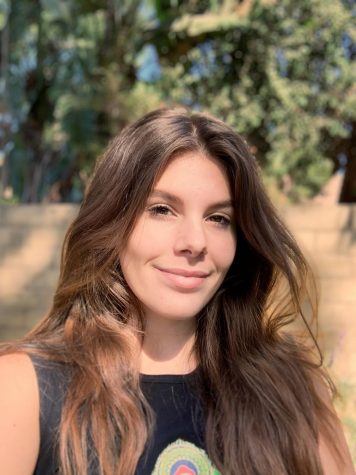How Cam High’s Wellness Center Aims To Help Students Improve Mental Health
With COVID-19 keeping those globally indoors, mental health has been at the forefront of the minds of many healthcare providers, government officials, and concerned citizens alike.
COVID-19 has been at the forefront of most of our lives recently. In regards to mental health, it has bore much relevance to students at Cam High and how they have been able to cope.
Detra Young, Cam High’s intervention specialist, has been able to witness the ways COVID-19 has effected her, as well as other students: “COVID-19 has brought some pros and cons to my role as a student intervention specialist.” She mentioned her positive aspects include, “…challenging me to think outside the box, be more creative in this role by learning new tools and skills I probably wouldn’t have engaged in if we were still at school, and it’s taught me patience.” On the contrary, she notes that not having access to students has been hard for her. She states that the referral process has been the same, but it is more difficult due to the fact she sends emails in order to reach out: “About 80% of the students I email do not respond back to the email.”
Young mentions one of the challenges she has faced working from home is not knowing when to stop working. She also struggles with the separation of work and home due to the fact that she spends most of her time in her bedroom: “ My bedroom is my office, my safe space, and where I sleep. I have to work in my bedroom because my kids are also in distance learning.”
Peer mentor and junior at Cam High, Aliyah Bernal, notes that students are not as open during virtual meets. She feels that a lot of this has to do with the fear of being overheard by the people in their household. According to Bernal, some students are scared to be vulnerable in their homes, so they tend to be more closed off during their appointments.
Upset caused by confined living spaces and the lack of being able to go out may be a pushing factor in why students want to reach out for help. Bernal said, “Student reach has been quite a struggle for the Wellness Center. Virtually, it tends to be more difficult as a lot of students do not realize that the Wellness Center and all of its resources are still available. We have been trying to get the word out to people that we are here and that students can still meet with Ms. Young or peer mentors but not everyone is getting that message.” Similarly, Ms. Young notes, “ We haven’t had many students reach out during distance learning or referred by teachers/staff.”
When asked where students could reach our intervention specialist and peer mentors best, Bernal referred to their new method of easily providing support to the student body: “We are on social media! Specifically, we have two active Instagram accounts. The first Instagram username is @achswellnesscenter. The purpose of this account is to spread awareness about mental health. The second account is purely run by peer mentors and is used to shine light on the usage of humor as a coping mechanism. You can find more funny, relatable content on the Instagram account with the username @achspeermentors.”
She also mentioned that, “The Wellness Center website is http://bit.ly/achswellnesscenter. On the website, you can find extra resources, hotlines, and a place to schedule an appointment with Ms. Young or a peer mentor of your choice. You can also access the Wellness Center website through the school’s website by clicking on the ‘student life’ drop down menu and selecting ‘Student Wellness Center.’” Ms. Young added, “We also have grown our peer mentoring program. Last year we had two peer mentors, and this year we have seven. 3- Seniors, 2- Juniors, and 2- Freshmen.”
The Wellness Center’s website’s goal is to provide a safe space for students to share how they are feeling and address their concerns. They help students develop a variety of skills including healthly coping skills, problem solving skills, organization, communication, leadership skills, along with several others. They do this through different services, such as brief individual counseling, group counseling, linkage to community sources, family conferences, along with others.
Jenna Chui, a senior at Cam High, reached out to the wellness center due to quarantine’s effects on her mental health. She noted that she definitely benefited from her experience, and feels a lot better about everything, as she needed to let out what she had been feeling for months. Chui believed the digital meets worked well for her, as it, “Made it easy to work around my schedule so we could meet at any time during the day.” She notes she would reach out again, and has reached out time and time again, and now works as a peer mentor. Chui advises those struggling with mental health during quarantine to take advantage of these community services at Cam High: “Reach out. Be vulnerable. You are not alone in this. You would be surprised about how many people are going through the same thing as you. Everything you are feeling is valid, and you are loved. Don’t stop fighting.”
Similarly to Chui, Bernal suggests students find someone they trust, and talk to them. According to Bernal, it can be a teacher, parent, friend, trusted adult, or even someone from Cam High’s Wellness Center. Students talk about what they are going through and what they are feeling; and from there, develop a game plan on what steps they need to take in order to better themselves. Similarly, Ms. Young added, “Reach out for support. Don’t feel that you are burdening someone with what you are going through. You don’t have to go through it alone. We are here to help!”

















































































![Senior Ditch Day... Relaxation or Truancy? [Video]](https://achsstinger.com/wp-content/uploads/2017/10/IMG_7119-900x599.jpg)
![Heavy Rain Hits Cam High [video]](https://achsstinger.com/wp-content/uploads/2017/02/maxresdefault-900x506.jpg)




